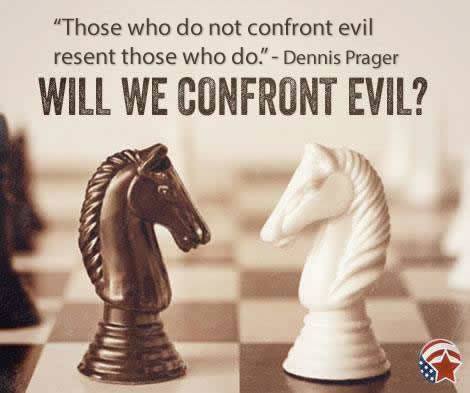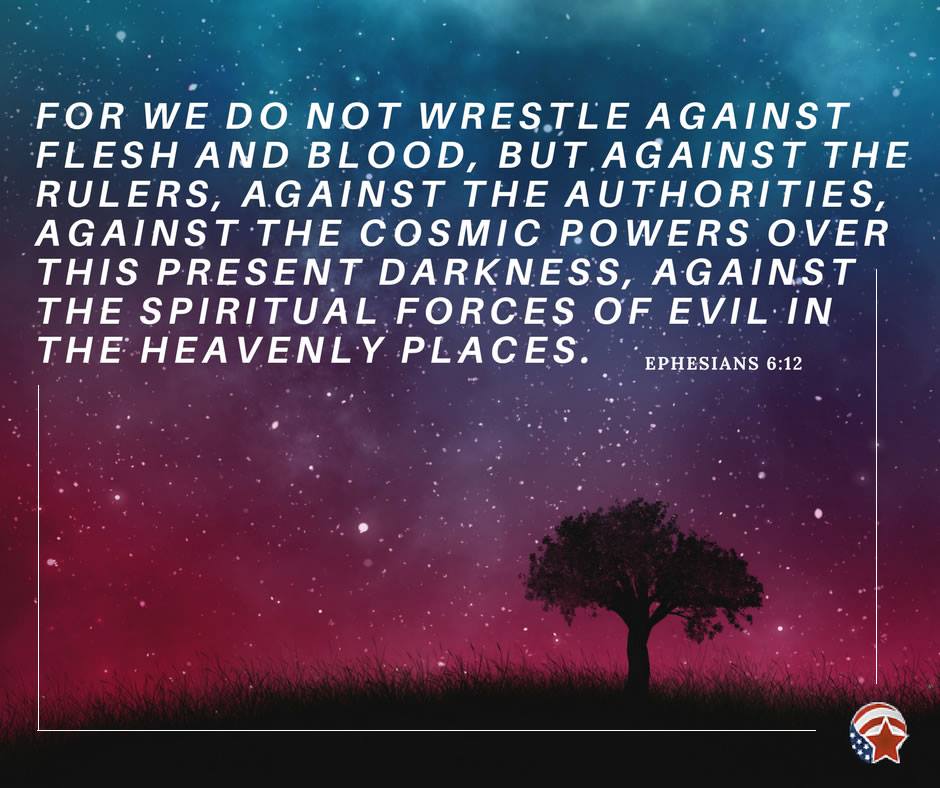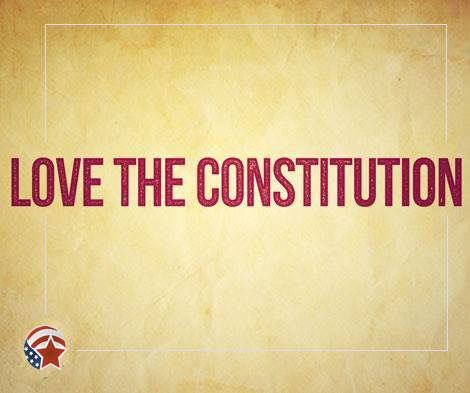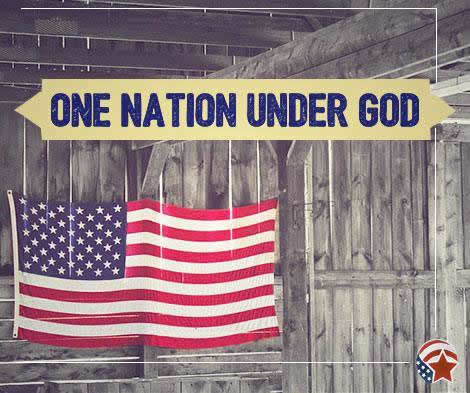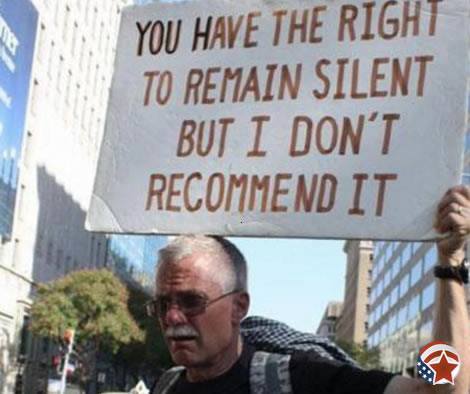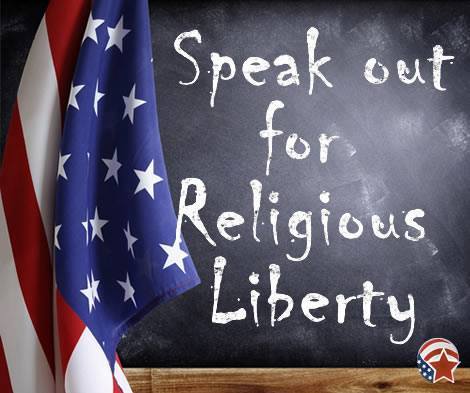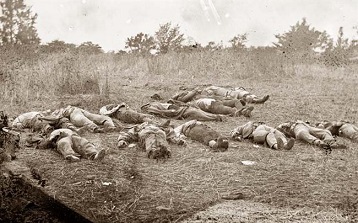
engaged in a great civil war, testing whether that nation, or any nation so conceived and so dedicated, can long endure. We are met on a great battlefield of that war. We have come to dedicate a portion of that field as a final resting place for those who here gave their lives that that nation might live. It is altogether fitting and proper that we should do this. But in a larger sense we cannot dedicate, we cannot consecrate, we cannot hallow this ground. The brave men, living and dead, who struggled here, have consecrated it far above our poor power to add or detract.The world will little note, nor long remember, what we say here, but it can never forget what they did here. It is for us, the living, rather to be dedicated here to the unfinished work which they who fought here have thus far so nobly advanced.
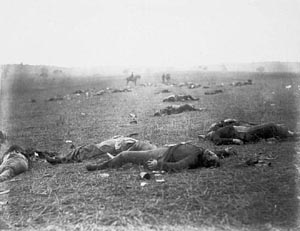 It is rather for us to be here dedicated to the great task remaining before us – that from these honored dead we take increased devotion to that cause for which they gave the last full measure of devotion — that we here highly resolve that these dead shall not have died in vain — that this nation, under God, shall have a new birth of freedom — and that government OF THE PEOPLE, BY THE PEOPLE, FOR THE PEOPLE, shall not perish from the earth.”
It is rather for us to be here dedicated to the great task remaining before us – that from these honored dead we take increased devotion to that cause for which they gave the last full measure of devotion — that we here highly resolve that these dead shall not have died in vain — that this nation, under God, shall have a new birth of freedom — and that government OF THE PEOPLE, BY THE PEOPLE, FOR THE PEOPLE, shall not perish from the earth.”
President Theodore Roosevelt stated in 1903:
“In NO other place and at NO other time has the experiment of government of the PEOPLE, by the PEOPLE, for the PEOPLE, been tried on so vast a scale as here in our own country.” Is “Government Of the people, BY the people, FOR the people” perishing?
Thomas Jefferson wrote to William Jarvis, September 28, 1820:
“You seem … to consider the judges as the ultimate arbiters of all constitutional questions; a very dangerous doctrine indeed, and one which would place us under the despotism of an oligarchy.”
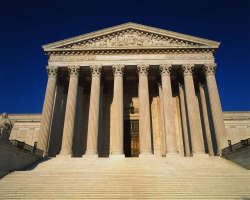
Students are taught America is a democracy, historians clarify it is a constitutional republic, but in actuality, America has been functioning as an OLIGARCHY–a rule by a few unelected Federal Judges.
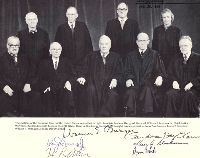
Webster’s 1828 Dictionary defines “oligarchy” as:
“A form of government in which the supreme power is placed in a few hands; a species of aristocracy.”
EXAMPLES Missouri’s legislators passed a ban on partial birth abortion September 5, 1999. Democrat Governor Mel Carnahan vetoed it. In a historic session, fifteen thousand citizens knelt in prayer around the State Capitol as the Legislature overrode his veto. Days later Federal District Judge Scott O. Wright suspended the law — and five years later it was still in limbo. For years a bill to ban partial birth abortion worked its way through the U.S. Congress, being signed by the President November 5, 2003. The next day a Federal Judge suspended the law for years – if not forever. In fact, thirty-one States passed bans on partial birth abortion, only to have unelected Federal Judges suspend them. DESPOT “Absolute and arbitrary authority…independent of the control of men” is the Webster Dictionary definition of “despot.”
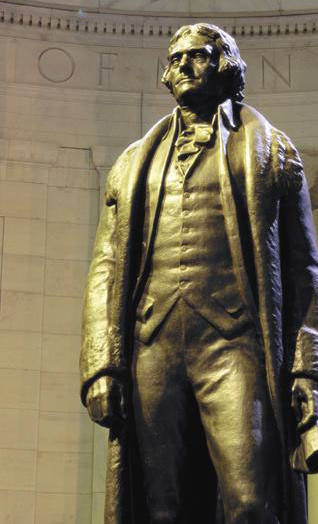
Thomas Jefferson warned of judicial despotism to William Jarvis, September 28, 1820:
“Our judges are as honest as other men, and not more so….and their power (is) the more dangerous, as they are in office for life and not responsible, as the other functionaries are, to the elective control. The Constitution has erected no such single tribunal, knowing that to whatever hands confided, with corruptions of time and party, its members would become despots.”
In his 1841 Inaugural Address, President William Henry Harrison warned:
“The great danger to our institutions does…appear to me to be…the accumulation in one of the departments of that which was assigned to others.
Limited as are the powers which have been granted, still enough have been granted to constitute a despotism if concentrated in one of the departments.”

EXERCISE IN FUTILITY Immense effort goes into the legislative process – political campaigns, registering voters, getting to polls, voting, swearing in, introducing bills, debating bills, voting on bills, overriding vetoes – yet this is all an exercise in futility if only a few unelected judges can invalidate the entire process, for example:
-The people of Arizona voted English as their official language, but Federal Judges overruled. (9th Circuit, Prop. 106, March 3, 1997)
-The people of Arkansas passed term limits for politicians, but Federal Judges overruled. (Sup. Ct., Term Limits v Thornton, May 22, 1995)
-The people of California voted to stop state-funded taxpayer services to illegal aliens, but Federal Judges overruled. (Prop. 187, Nov. 20, 1995)
-The people of Colorado voted not to give special rights to homosexuals, but Federal Judges overruled. (Sup. Ct. Romer v Evans, 1992)
-The people of Missouri defeated a tax increase, but Federal Judges overruled. (8th Circuit, Missouri v Jenkins, Apr. 18, 1990)
-The people of Missouri limited contributions to State candidates, but a Federal Judge overruled. (8th Circuit, Shrink Pac v Nixon, Jan. 24, 2000)
-The people of Missouri passed “A Woman’s Right to Know.” Governor Bob Holden vetoed it. Legislators overrode his veto, but a Federal Judge overruled. (U.S. District Judge Scott O. Wright, Sep. 11, 2000)
-The people of Nebraska passed a Marriage Amendment with 70% of the vote, but a Federal Judge overruled. (U.S. District Judge Joseph Batallion, May 12, 2005)
-The people of New York voted against physician-assisted suicide, but Federal Judges overruled. (2nd Circuit, Apr. 2, 1996)
-The people of Washington voted against physician-assisted suicide, but Federal Judges overruled. (9th Circuit, Mar. 6, 1996)
-The people of Washington passed term limits for politicians, but Federal Judges overruled. (Sup. Ct., Term Limits v Thornton, May 22, 1995)
To read full article click here: http://bit.ly/2fe9rro



